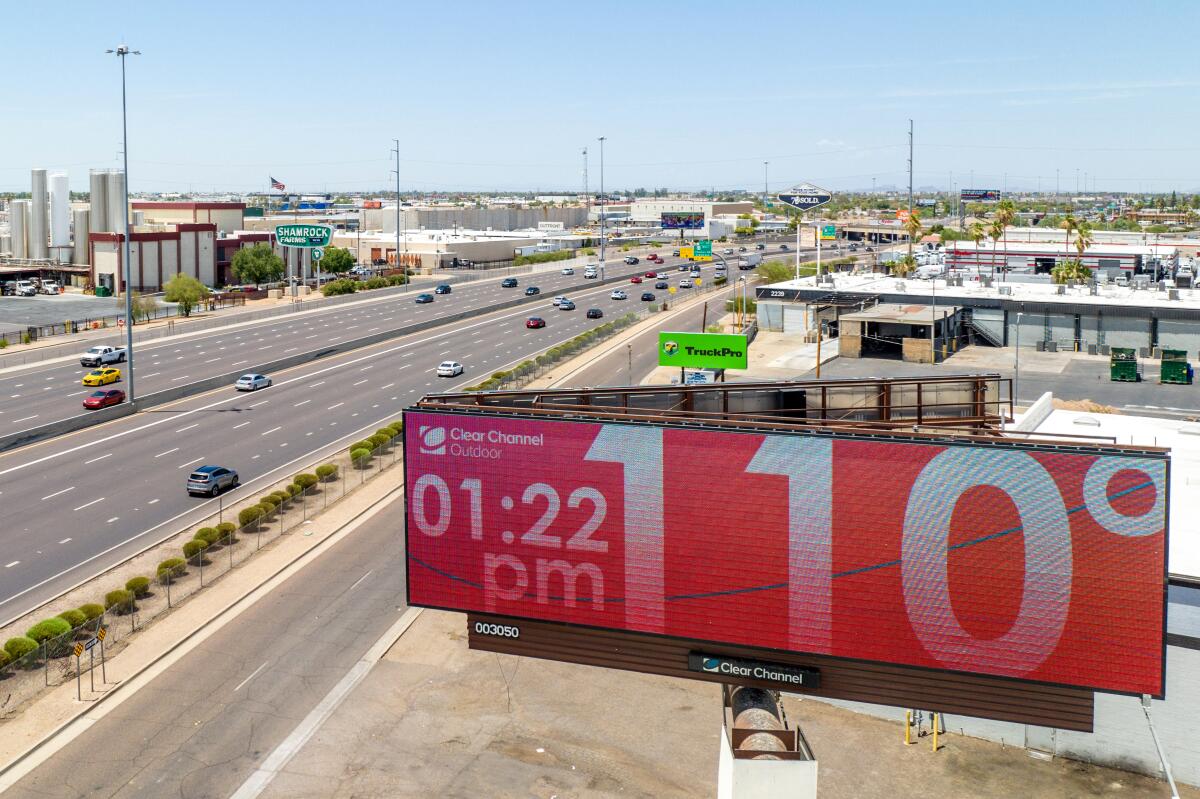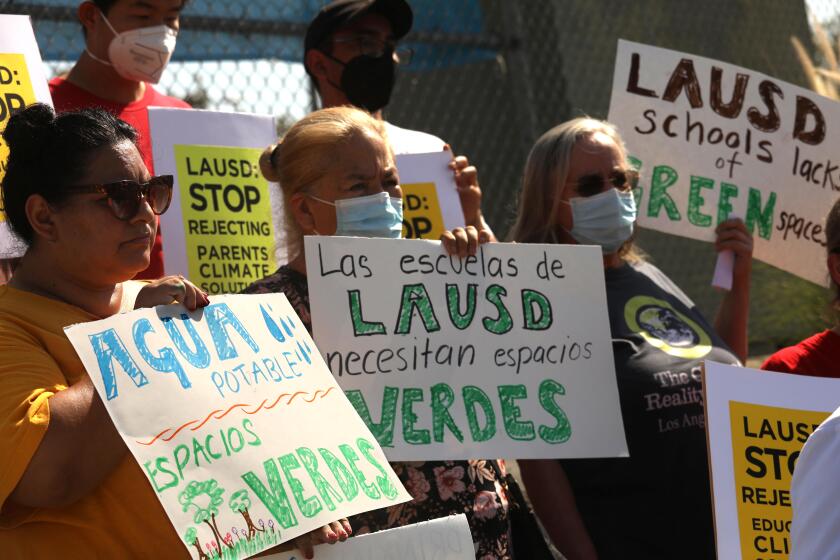Letters to the Editor: Arizona needs an aggressive solar mandate to power all those A/C units

- Share via
To the editor: In the desert Southwest, it is clear that soaring summer temperatures will make most of its cities uninhabitable without air conditioning. (“Her bedroom was 100 degrees during Phoenix heat wave — and her A/C was out,” Aug. 3)
This problem is compounded by the continued reliance on fossil fuels for power generation and transportation. Only 17% of Arizona’s energy generation is renewable, compared with 84% in South Dakota.
Although the upfront costs are high, Arizona should require every new housing development to generate its own solar power, with adequate storage to power lifesaving air conditioning even at night, while requiring all new shopping center and other large parking lots to be shaded with solar panels.
Over time, these improvements will make financial as well as environmental sense. A subsidy should be provided for homeowners to upgrade their A/C systems to withstand the rigors of sustained high temperatures.
Jonathan Kaunitz, Santa Monica
..
To the editor: Los Angeles has been spared the blistering heat of cities like Phoenix, but let’s not kid ourselves — the weather hasn’t been decent for everyone in the city.
Yes, some days we’re fortunate enough to be protected from the morning sun thanks to the marine layer, but what about the heat after it burns away or days when we don’t get a layer at all?
Unless you live in the cushy green neighborhoods of West L.A., you’re left incredibly exposed to the heat because of the lack of tree canopy and vegetation, nature’s cooling system.
As the city waits for a decision on the potential mandate for A/C in all rental units, not everybody can say that the weather has been nice. Los Angeles has a serious problem with the uneven distribution of vegetation, and now officials are left to react to the issue rather than prevent it.
Karen Cederholm, Los Angeles
..
To the editor: Your article on climate change creating bigger waves at the beach says data show that the “sea is becoming harder to restrain.”
No data confirmation is necessary to understand that humans have been and continue to be hard to restrain. It is not the sea that needs restraining; it is the habits and desires of humans, for we are driving the destruction and altering of the Earth’s climate.
We continue to consume fossil fuels as if we are actually wanting to self-destruct. Not even a pandemic could force us to slow down, reflect and change our course. We are back to business as usual in our speed, consumption and convenience.
More attention is given to a movie about a doll than the current, unfolding real-life blockbuster: human-driven climate change creating an unlivable planet for ourselves and all other beings.
We as a species need restraining, not the sea. And by we, I mean the governments of the world, the fossil fuel companies and their enablers, you reading this letter and me writing it.
Gina Ortiz, Claremont






